Grand Prix Literature 2024 goes to author from canton Aargau
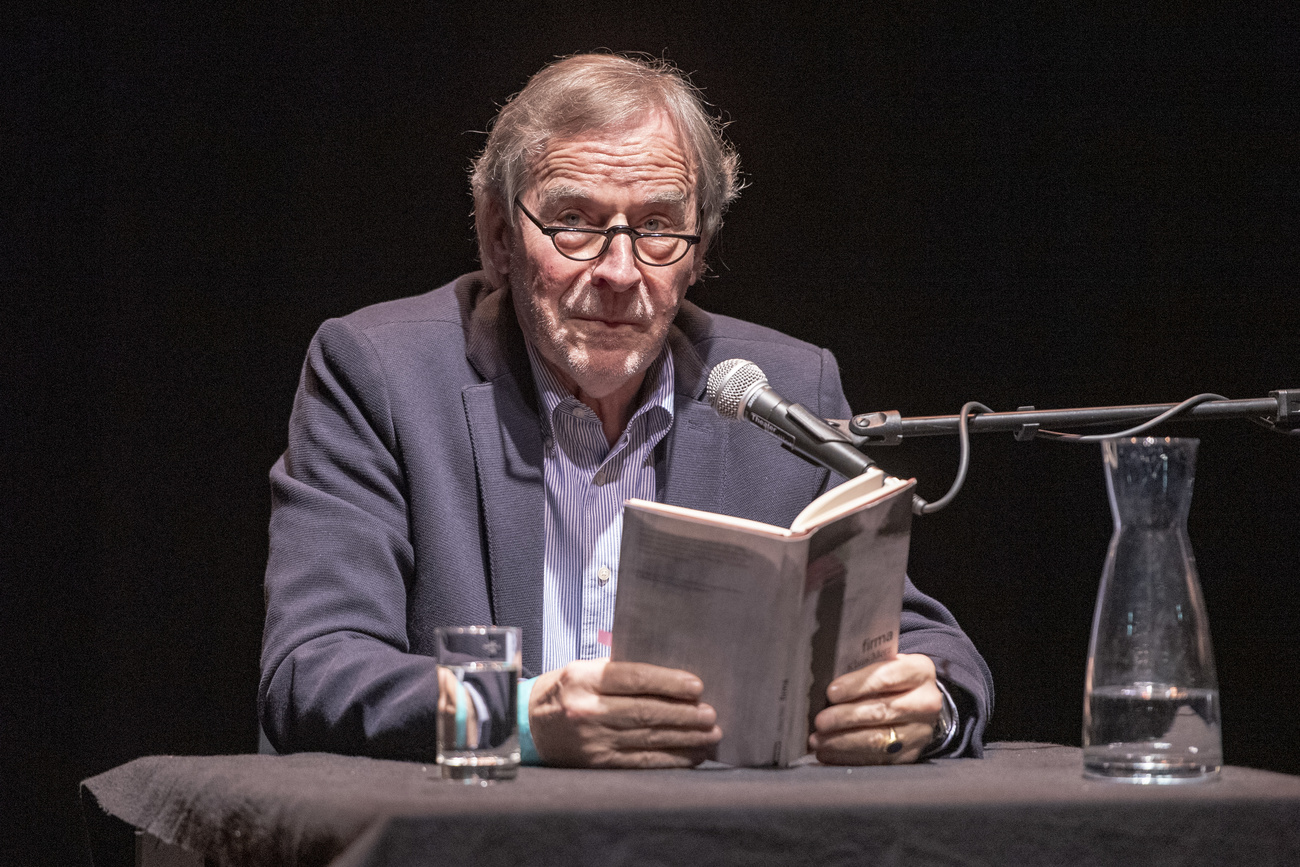
Writer Klaus Merz from canton Aargau is the 2024 winner of the Grand Prix for Swiss Literature. The Special Prize for Translation goes to Dorothea Trottenberg. Seven authors have also been honoured, including three French-speaking authors: Bessora, Jérémie Gindre and Ed Wige.
Introspection and density of language are two characteristics of the work of Klaus Merz, now 79, explains the Federal Office of Culture in a press release on Thursday. Since his first collection of poems, Mit gesammelter Blindheit (with collected blindness) (1967), he has written a multifaceted oeuvre: poetry, prose (stories, short stories, short novels and essays), plays, radio plays and children’s books.
The short novel Frère Jacques (1997) brought him international recognition. His thirty or so books have now been brought together in a complete edition. And he is still writing, with firma (company) (2019) and Noch Licht im Haus (there is still light in the house) (2023).
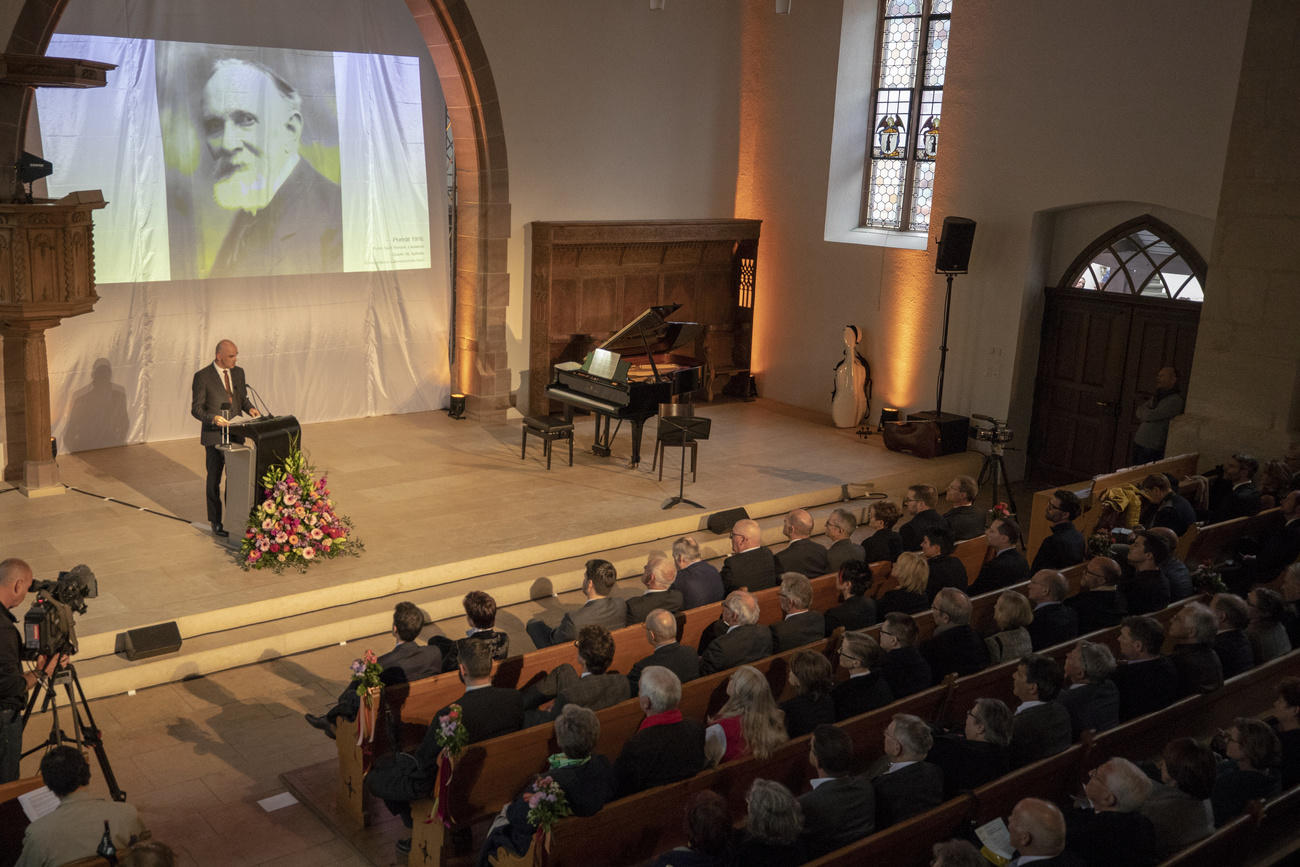
More
When a Swiss won a Nobel Prize for literature
A frequent award-winner, he has been translated into many languages. His most recent French translations include Tout près du vent (close to the wind), published in 2018, and L’Argentin (the Argentinian) (2013).
Special translation prize
Dorothea Trottenberg, 67, is one of the most prolific freelance translators in German-speaking Switzerland. She stands out for the wide range of stylistic registers she masters, from the great classic novels by Gogol, Turgenev, Chekhov and Tolstoy, to contemporary stories by Elena Čižova and Maria Rybakova, the experimental prose of Sigismund Krzyzanowski and the hard-hitting texts of Andreï Guelassimov.
Since 2005, she has devoted herself to the Complete Works of Ivan Bunin. The ten volumes published to date have earned her a place of honour among today’s translators of Russian. In 2012, Dorothea Trottenberg was awarded the Paul Celan Prize by the German Literary Fund, the most important German-language translation prize.
The adventures of a white slave
Seven authors have also been honoured, including three French authors: Bessora with Vous, les ancêtres (You, the Ancestors), Jérémie Gindre with Tombola (Raffle) and Ed Wige for Milch Lait Latte Mleko (Milk in four languages, German, French, Italian and Polish).
Bessora, 56, after a career in international finance in Geneva, went back to studying anthropology and wrote her first novel. She won the Prix Fénéon in 2001 for her novel Les Taches d’encre (Ink Stains) and the Grand Prix littéraire d’Afrique noire in 2007 for Cueillez-moi jolis Messieurs… (Pick Me Lovely Gentlemen).
La Dynastie des boiteux (The lame dynasty) is both a fable about slavery and a meditation on transmission. Bessora, who was born in Brussels and grew up in Europe, the United States and Africa, has built this series in chronological order. Volumes III and IV of this saga of slavery were published in 2018. With Vous, les ancêtres, Bessora reveals the origins of La Dynastie des boiteux.
This first volume illuminates the adventures of a white slave turned planter in America. Jane, born in Cornwall, was accused of theft and deported to the Americas in 1684. A century later, one of her descendants went to study gorillas in Gabon, one of Bessora’s countries, along with Switzerland, where she grew up. All that’s missing now is the second volume in the series.
Art in the plural
In a different register, 48-year-old Genevan artist Jérémie Gindre practices art in its many forms, including drawing, sculpture, installation and writing. His visual work is exhibited in numerous galleries in Berlin, Geneva and Lausanne.
In her collection of short stories, Tombola, we follow the trajectory of “characters going somewhere for a precise reason, but without knowing exactly what they are going to find there”. The weather will disrupt their plans. This book could be compared to a series of postcards, with the seven stories echoing each other and forming a cycle.
The shadow of war
In her first solo book, Milch Lait Latte Mleko, Ed Wige recounts the daily life in Switzerland of a little girl who arrives from the former Yugoslavia with her mother, forced to grow up between “grüezi” (hello in Swiss-German) and “bitte schön” (please in German) in the ghostly shadow of a father seen on the television news because of the war.
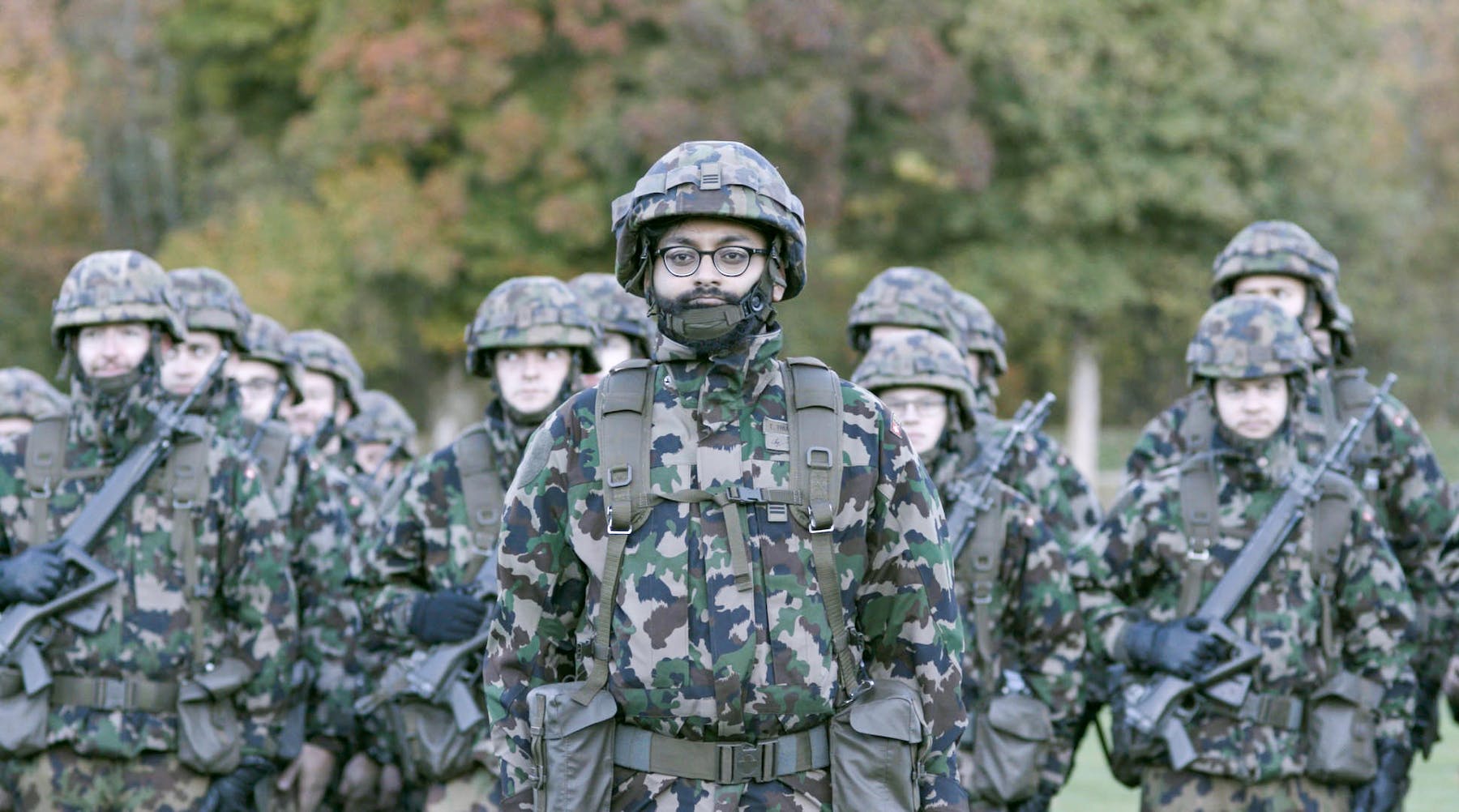
More
The Swiss film harvest for 2024: taking stock of migration and the right to protest
The 40-year-old author, who lives in Lausanne, studied international relations and then at the Literary Institute in Biel. Since then, she has devoted herself to writing. She is a member of various literary groups such as AJAR and Particules and is interested in writing with more than two hands.
A prize from Ticino
One of the last four prizes goes to Ticino author Claudia Quadri, who is also a journalist with RSI radio. In her latest autobiographical novel, Infanzia e bestiario (Childhood and bestiary), she writes about her family’s hotel in Paradiso, which no longer exists.
One of her previous books, Suona, Nora Blume (Play, Nora Blume), won the 2015 Swiss Literature Prize before being translated into French as “Joue, Nora Blume”.
In German, Judith Keller won for Wilde Manöver (Wild manoeuvres), Dominic Oppliger for giftlan and Ivna Žic for Wahrscheinliche Herkünfte (Probable origins).
The two main prizes are worth CHF40,000 ($ 45,297) each, and the last seven prizes are worth CHF25,000 each. The award ceremony for the Swiss Literature Prizes will take place on May 10 as part of the Solothurn Literary Days. The Federal Jury for Literature is chaired by journalist Thierry Raboud.
Translated from French by DeepL/amva
This news story has been written and carefully fact-checked by an external editorial team. At SWI swissinfo.ch we select the most relevant news for an international audience and use automatic translation tools such as DeepL to translate it into English. Providing you with automatically translated news gives us the time to write more in-depth articles.
If you want to know more about how we work, have a look here, and if you have feedback on this news story please write to english@swissinfo.ch.

In compliance with the JTI standards
More: SWI swissinfo.ch certified by the Journalism Trust Initiative









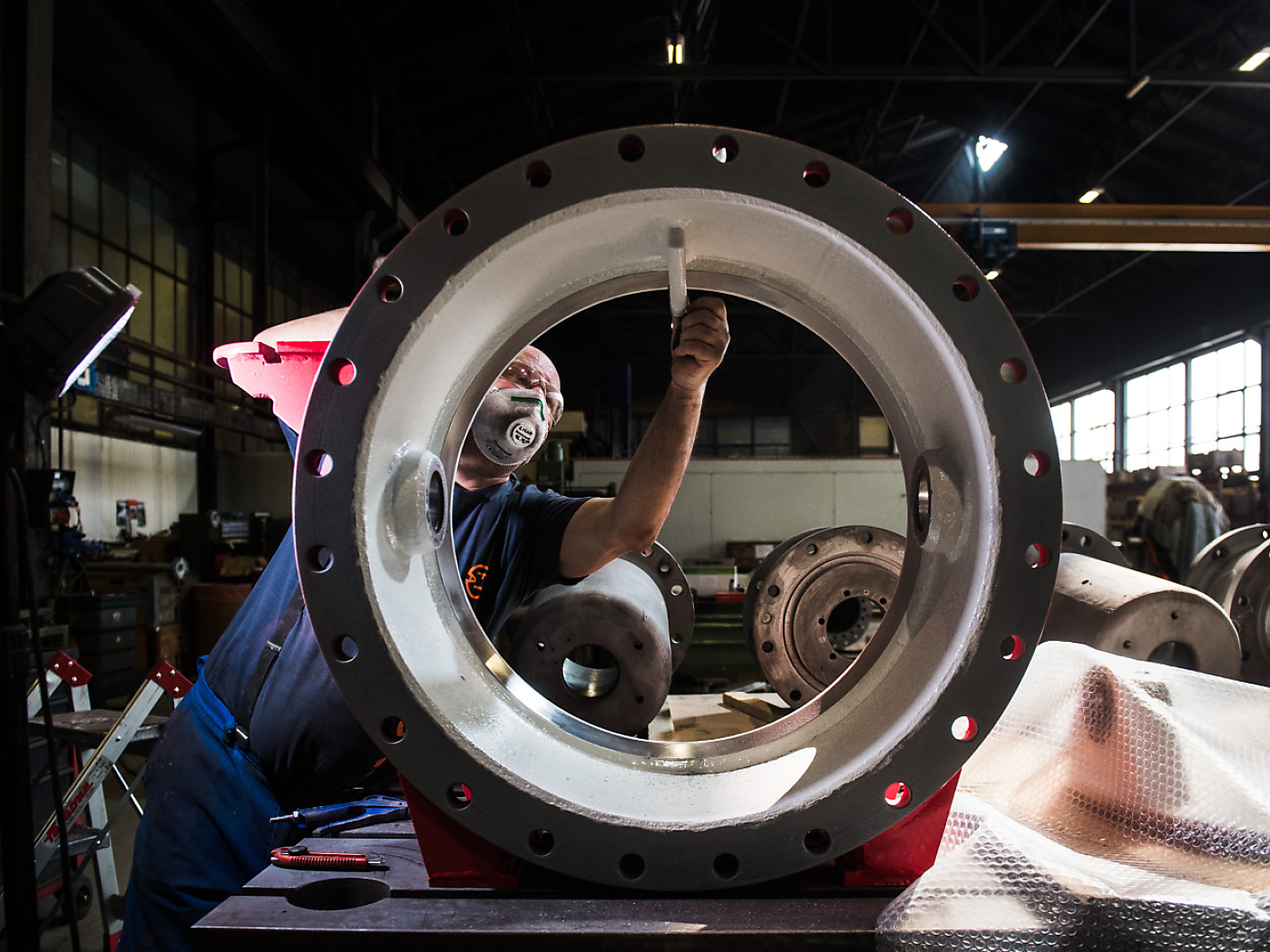
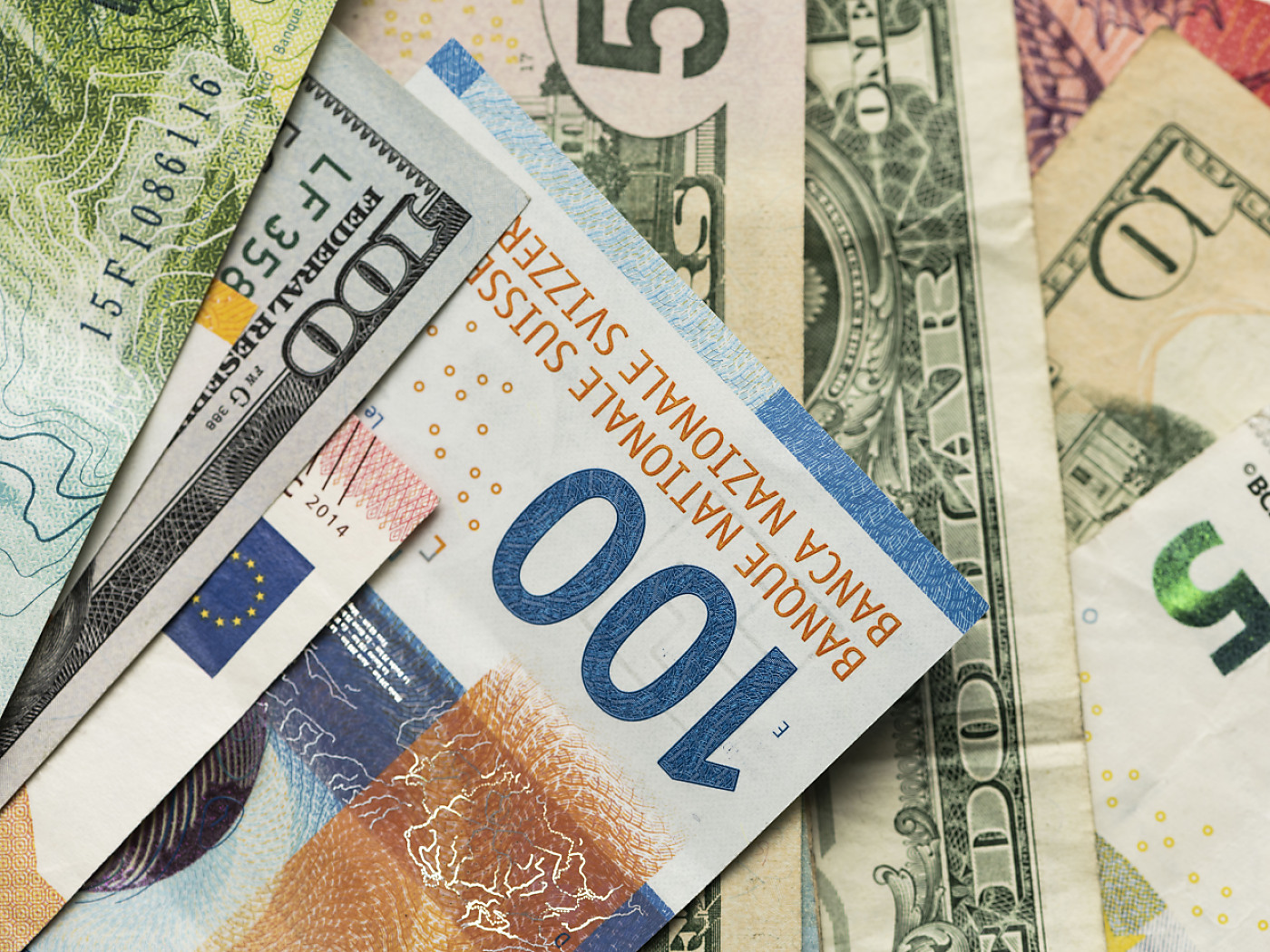


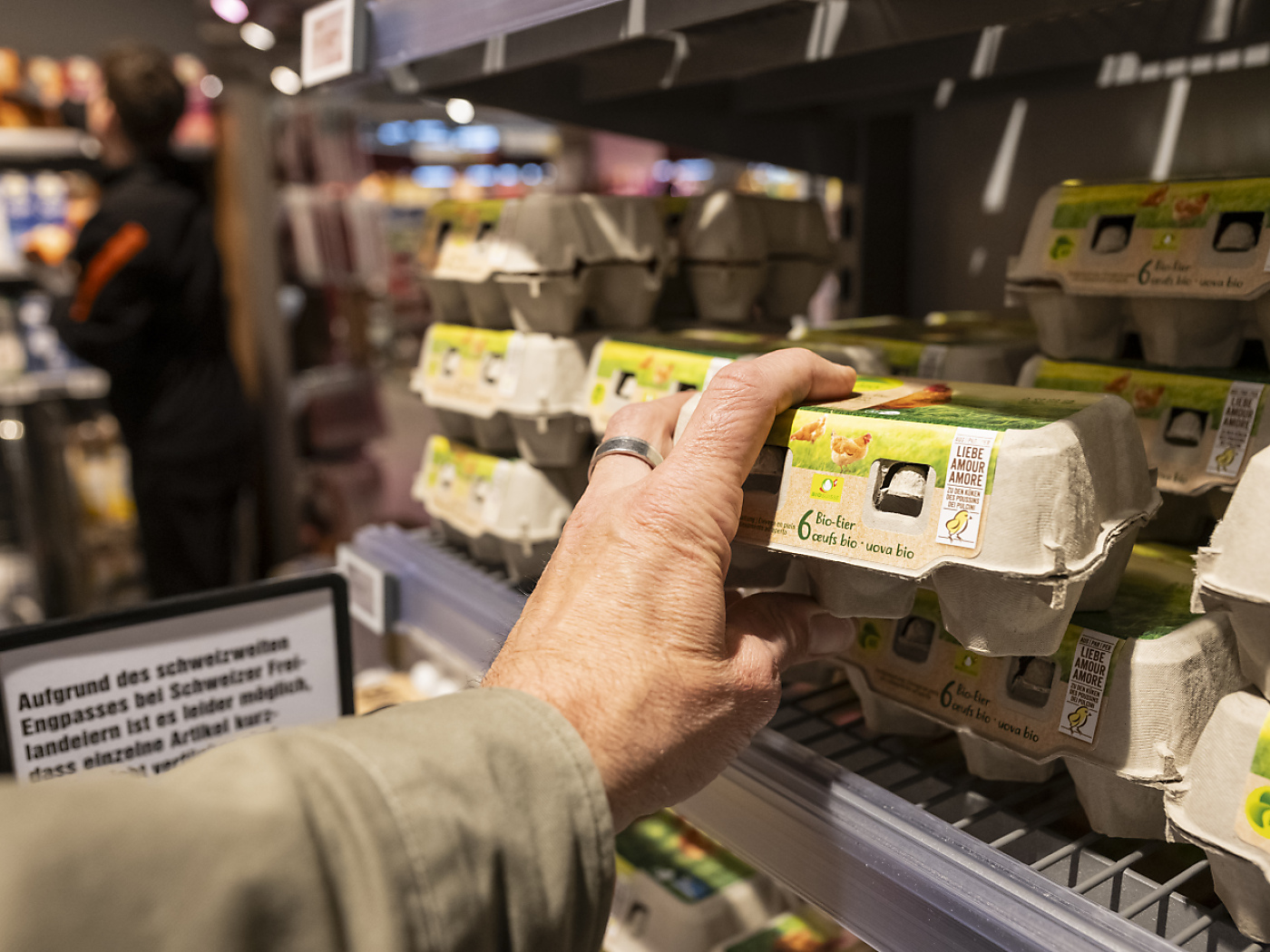


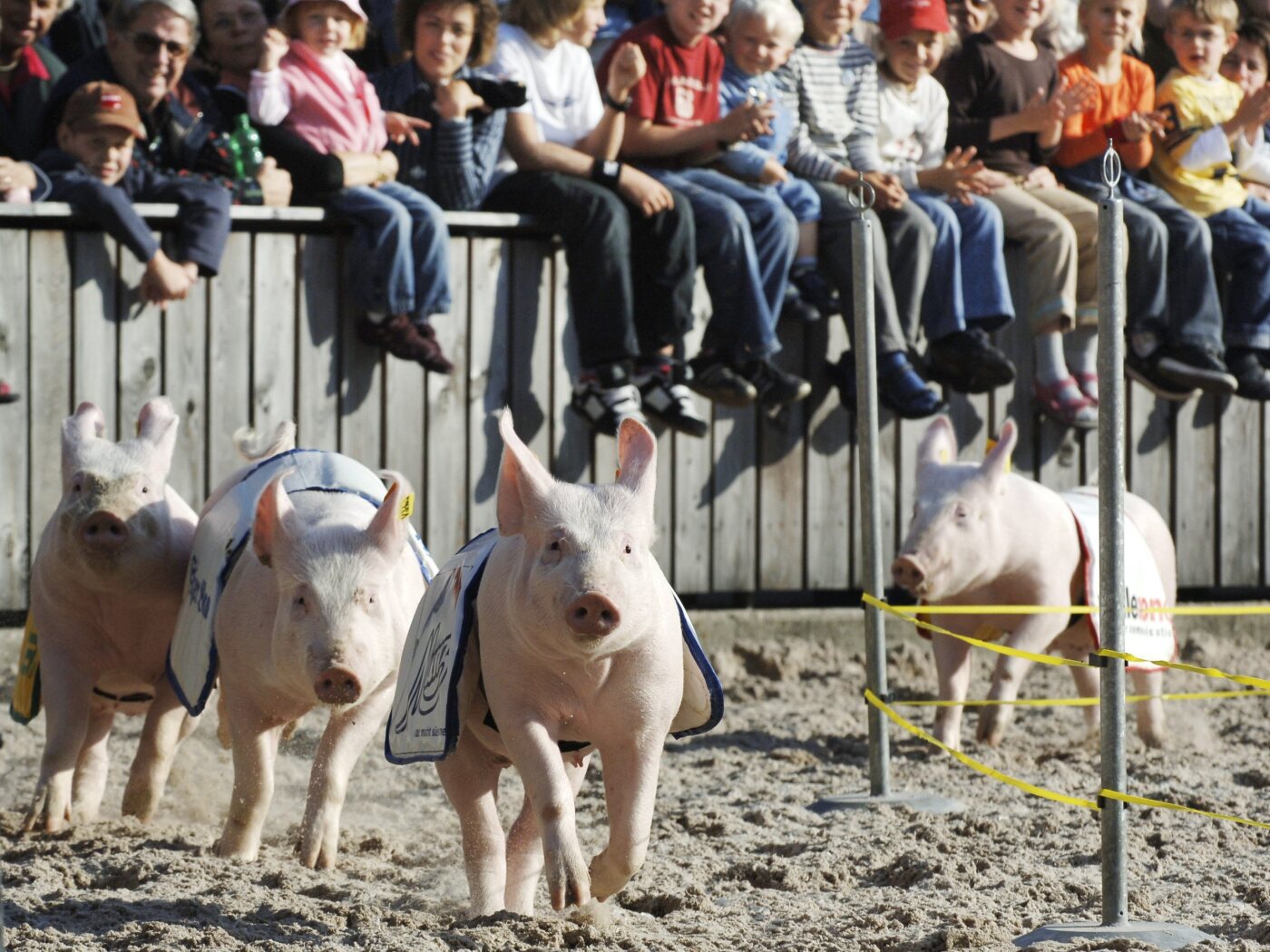

You can find an overview of ongoing debates with our journalists here . Please join us!
If you want to start a conversation about a topic raised in this article or want to report factual errors, email us at english@swissinfo.ch.